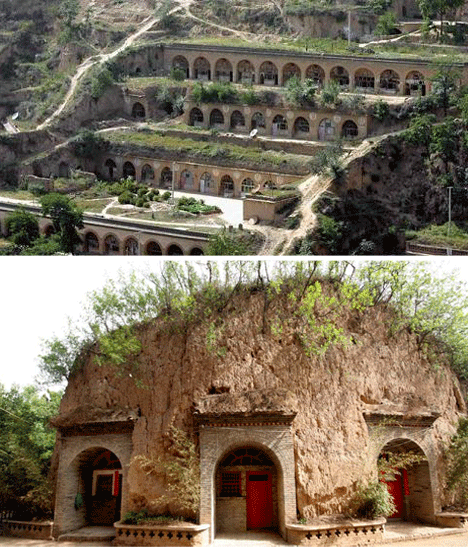Yaodong Underground Cave Dwellings, China

Over 30 million of China’s residents live simple, low-income lifestyles in caves known as yaodong. Dug into the mountains of the Shaanxi province, these earthen dwellings range from the most basic of bare dirt rooms to higher-end caves with bricked walls, multiple chambers, electricity and running water. The former rent for as little as $30 per month, while the latter can sell for $46,000. The soft yellow earth of the loess plateau makes it easy to dig out these humble residences, which formerly made up the communist revolutionary base of Yanan. The caves stay naturally cool in the summer and warm in the winter.
While many rural Chinese have been encouraged to move to the cities to live more modern lifestyles, those who have enjoyed the simplicity of the caves have a romantic attachment to the tradition and intend to stay well into the future.
Sealand: The World’s Smallest Nation
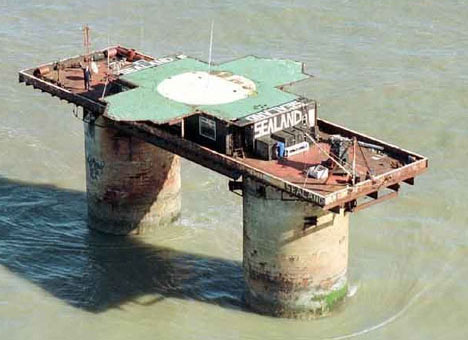
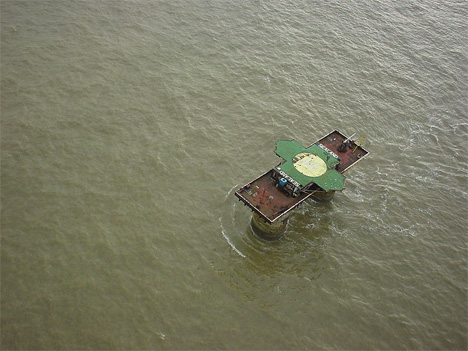
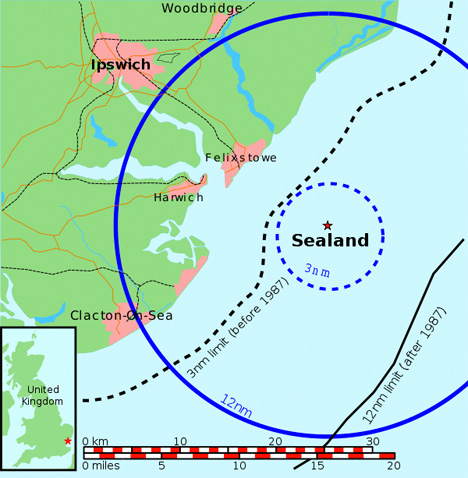
If you sail to an old abandoned fort in international waters, can you claim it and become king of your very own micronation? It sounds absurd, but it has really happened (more than once!) with the Principality of Sealand as the prime example. Formerly HM Fort Roughs off the coast of Suffolk, England, the world’s smallest nation is not officially recognized by any established sovereign state, but it has been occupied and governed by the family and associates of Paddy Roy Bates, who seized it from a group of pirate radio broadcasters in 1967. Bates ultimately moved back to mainland Essex at the end of his life, and his son took over after his death.
Infighting led to a civil war of sorts in 1978, when a man who described himself as the Prime Minister of Sealand hired German and Dutch mercenaries to spearhead an attack on the settlement. He was captured and charged with treason, and the resulting involvement of Britain and Germany was deemed by Bates to be de facto recognition of Sealand’s sovereignty. In 2006, Sealand caught fire, though all damage was repaired by the end of the year. Sealand operates as a controversial data haven and intends to open an online casino; it’s also open for tourist visits by appointment.
RIP: The Terrifying, Dystopian Kowloon Walled City
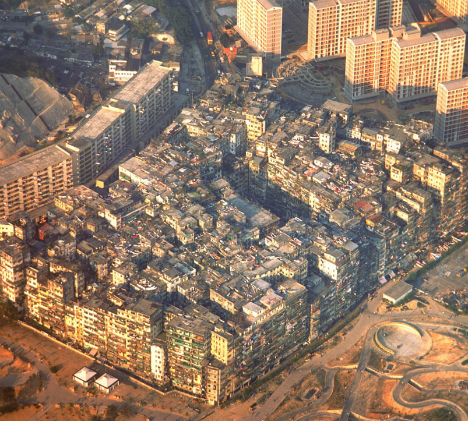

There’s never been anyplace in the world quite like Kowloon Walled City, an amazingly dense, lawless settlement packed with at least 50,000 inhabitants in just 6.5 acres. Known for a period of mob rule and sky-high rates of prostitution, gambling and drug use, Kowloon was demolished in 1993, the site now a tranquil public park. It was first created as a military fort nearly century ago and was passed back and forth during the conflict between Britain and Hong Kong, though neither government wanted responsibility for it, especially as its population grew. The city became so compact that residents just kept building up, enveloping the lower levels in complete darkness even on sunny days. To see the sky, inhabitants had to access the rooftops. The dystopian feel of the city has popularized it as a setting for novels and games.
